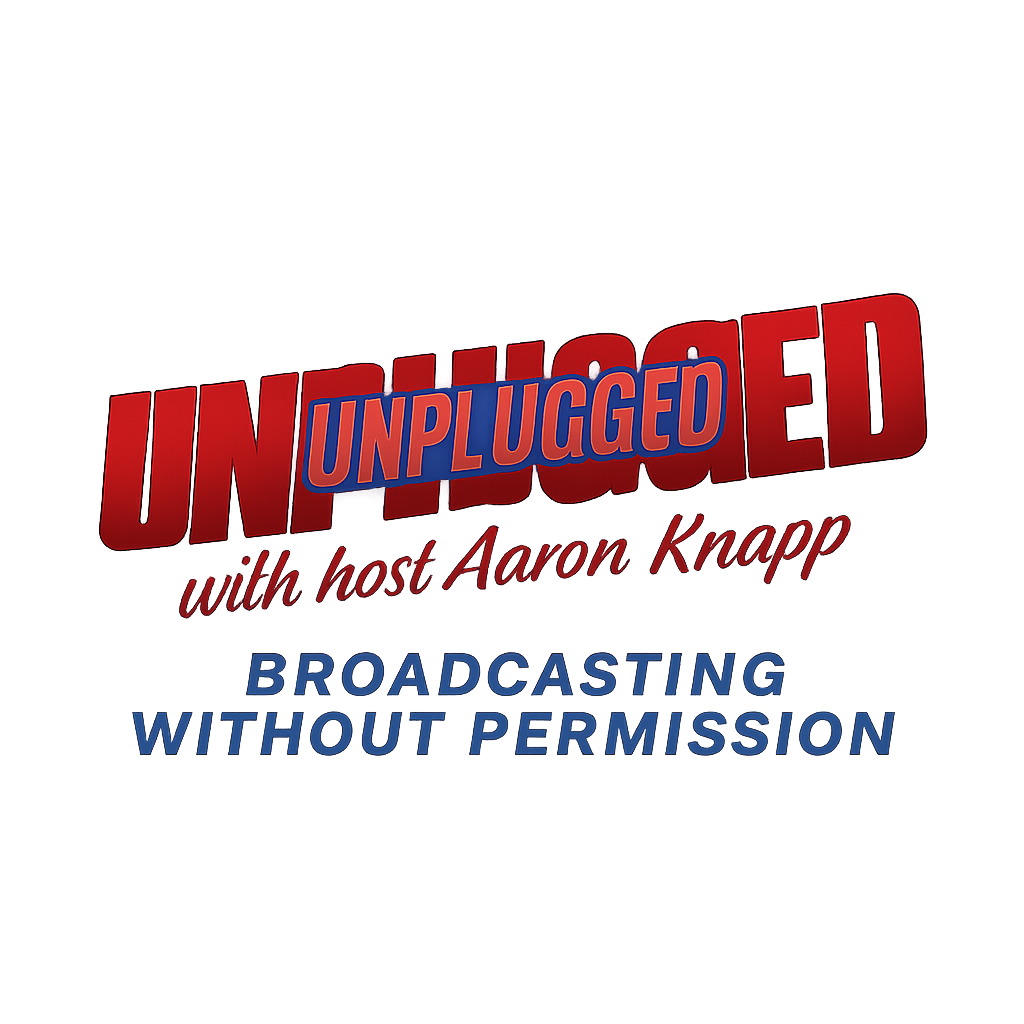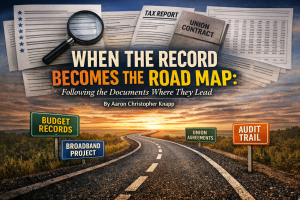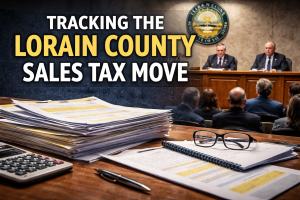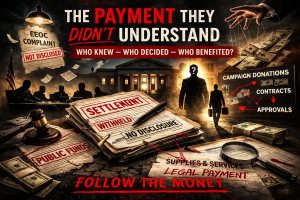🧯 Lorain City Politics Unplugged: When Speech Becomes a Crime
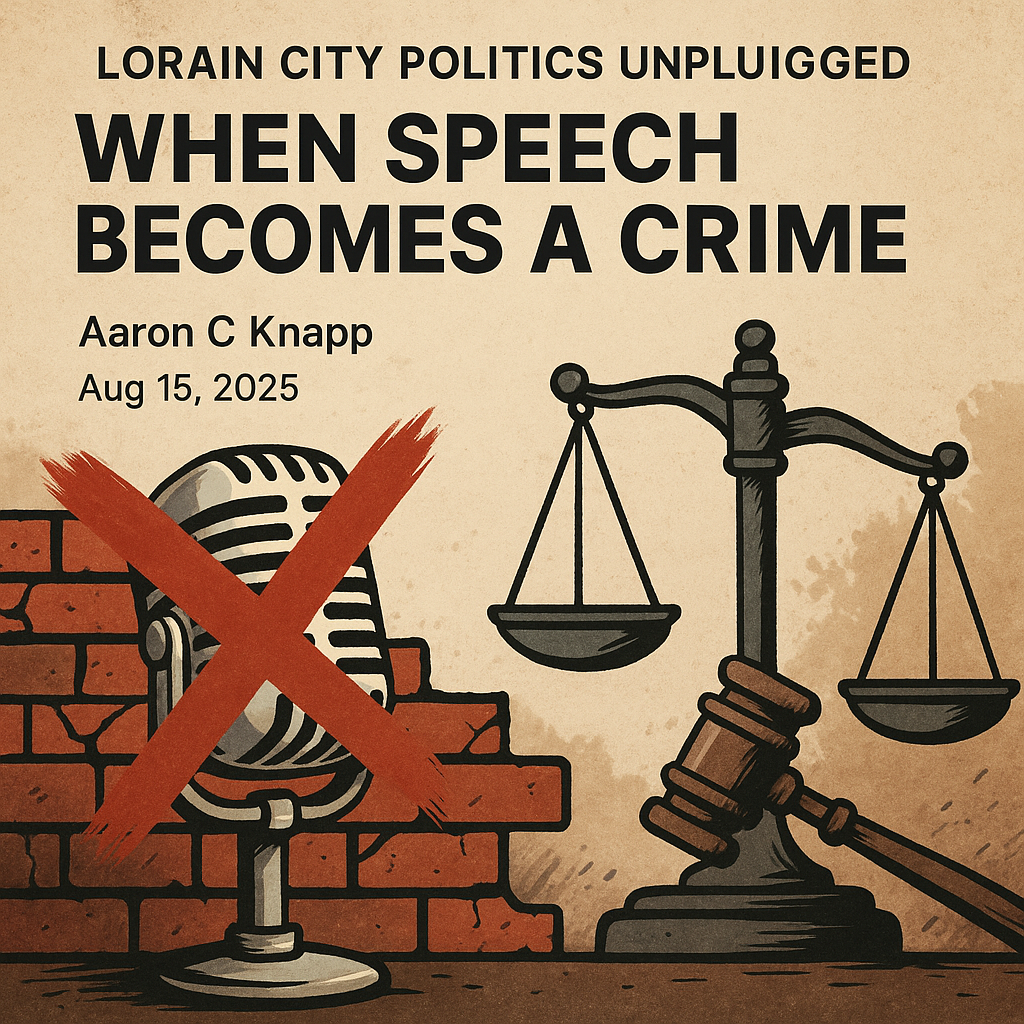
Aug 15, 2025
Ashli Ford. Aaron Knapp. And the Quiet War on Dissent.
By Aaron Knapp August 2025
Editor’s Note: This article was updated on August 15, 2025 at 12:09 p.m. to reflect additional fact-checking and ensure accuracy of dates, charges, and case details.
🎙️ The Silencing of Ashli Ford
Ashli Ford, a former podcaster and persistent critic of local government, is days away from sentencing for a crime not of violence—but of words.
On May 22, 2025, after a bench trial in Erie County Common Pleas Court before visiting Lorain County Judge Debra Boros, Ford was acquitted on 15 of 19 counts and convicted on four counts of felony intimidation under R.C. 2921.03. All four convictions stemmed from a single Facebook post that named Norwalk Mayor David Light, Law Director Stuart O’Hara, Safety–Service Director Michael White, and former Police Chief David Smith.
The language in question:
“I will escort you to your demise in a manner more akin to Malcolm X than Martin Luther King Jr.”
Prosecutors are now seeking a 30-month prison sentence, arguing she presents an ongoing threat merely for continuing to post online.
This came less than a year after Ford had won a separate case pro se—October 2, 2024, in Norwalk Municipal Court—when she was acquitted of misdemeanor falsification charges brought by the same city.

⚖️ Speech vs. Threats: Walking a Legal Tightrope
The First Amendment broadly protects political speech, even when it is caustic, unsettling, or harshly critical of government officials. The U.S. Supreme Court has long recognized that this protection extends to “vehement, caustic, and sometimes unpleasantly sharp attacks on government and public officials” (New York Times Co. v. Sullivan, 376 U.S. 254, 270 (1964)).
But the protection is not absolute. The law draws a narrow line at “true threats”—statements that a reasonable person would interpret as a serious expression of intent to commit unlawful violence. In Counterman v. Colorado, 600 U.S. 66 (2023), the Court clarified that prosecutors must prove the speaker had at least a reckless awareness that their words would be taken as a threat.
Ford’s post did not specify a time, place, weapon, or concrete act. It was political and rhetorical, drawing on historical figures in the context of her grievances with city leadership. Nonetheless, Judge Boros concluded that in context, it met Ohio’s statutory definition of intimidation against public officials.
The case poses a chilling question: If such language is criminal, where does that leave activists, journalists, or politicians whose speech is meant to be provocative?
🧱 My Own Experience: When Speaking Out Became a Legal Threat
Earlier this year, I became the target of an escalating attempt to criminalize my voice.
Tia Hilton, a well known public political commentator and activist in Amherst, filed for a civil protection order against me, initially claiming I had threatened her through a third party, allegedly saying I’d “like to see that b*#*h dead.”
Let’s break that down:
- The statement was not made directly to her.
- It came through a third party who later refused to testify under oath.
- The allegation was never substantiated, and no criminal charges were filed on that claim.
But the story didn’t stop there.
Later, she claimed that my use of her name in hashtags violated a no-contact provision of the temporary protection order. This despite the fact that:
- I had her blocked on all platforms,
- My posts were not directed to her,
- And the articles I wrote were clearly intended for the public, not as harassment.
The court granted the protection order temporarily ex parte, meaning it was issued without notifying me or giving me a chance to defend myself. That temporary order was later withdrawn after I challenged it in court.
Behind the scenes, the matter was brought before both Lorain and Oberlin courts, as an attempt to escalate it toward criminal charges.
When I showed up ready to defend my rights, the request for a permanent order was dropped. No charges stuck. No conviction. But the system’s power to intimidate had already made its mark.
🧱 My Own Experience: When Speaking Out Became a Legal Threat
Earlier this year, I found myself facing a smaller-scale version of the same tactic now being used against Ford—one that relied on civil protection order laws to blur the line between criticism and harassment.
Tia Hilton, a well-known political commentator and activist in Amherst, sought a civil stalking protection order against me. In her initial filing, she claimed that a third party told her I had said I’d “like to see that b*#*h dead.”
Let’s be clear:
- The statement was not made directly to her.
- It came through a third party who later refused to testify under oath.
- No criminal charges were ever filed over the claim.
Later, Hilton alleged that my use of her name in hashtags violated the no-contact provision of a temporary protection order—even though I had her blocked on all platforms, my posts were public commentary aimed at readers, not her, and the content concerned matters of public interest.
The temporary order was granted ex parte—without my knowledge or opportunity to respond—and later withdrawn after I challenged it in court. Attempts were made to escalate the matter in both Lorain and Oberlin courts, but no charges stuck.
Still, the process had already done its damage: reputational smears, time lost, and the ever-present threat of legal escalation if I continued to write.
🪓 The Tools of Suppression: Legal Pressure and Political Fear
Ford’s case may result in prison. Mine ended without a conviction. But both reveal the same pattern: the legal system being used as a tool of political suppression.
The modern toolbox for silencing dissent now includes:
- Protection orders rebranded as shields against political criticism.
- Intimidation statutes stretched to cover rhetoric and metaphor.
- Social media policies weaponized to deplatform critics.
This is not simply about law—it’s about power. The more these tactics succeed, the narrower the space becomes for speech outside official approval.
🧠 Final Thoughts: From Lorain to Everywhere
Ashli Ford is not a household name. Neither am I.
But that’s the danger—you don’t have to be famous to be targeted. You just have to be loud enough to inconvenience someone with influence.
What happened to Ford could happen to anyone who challenges their local government, names names in a Facebook post, or refuses to “tone it down” when told.
The lesson is not just about her case—it’s about the fragility of free expression when the wrong words in the wrong forum can be recast as crimes.
Politics without criticism is propaganda.
Government without accountability is tyranny.
Speech without protection is not free speech at all.
Aaron Knapp is a Lorain social worker, candidate for City Council, and advocate for open government and civil liberties.
⚖️ Legal Disclaimer
The contents of this article represent my personal views and experiences as of the date of publication. This is not legal advice and does not constitute an admission of wrongdoing by any party mentioned. All legal matters referenced are based on public record as of publication and may change with further court proceedings. Any statements regarding others are made in good faith from available evidence and are not intended to defame or cause harm. Readers are encouraged to verify facts independently and seek professional legal counsel on any related matters.
Any statements regarding others are made in good faith based on available information and are not intended to defame or harm reputation. Readers are encouraged to independently verify facts and seek professional legal counsel regarding any related matters.
